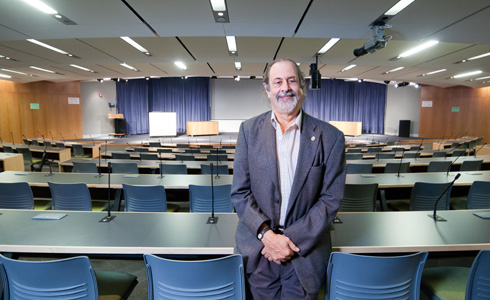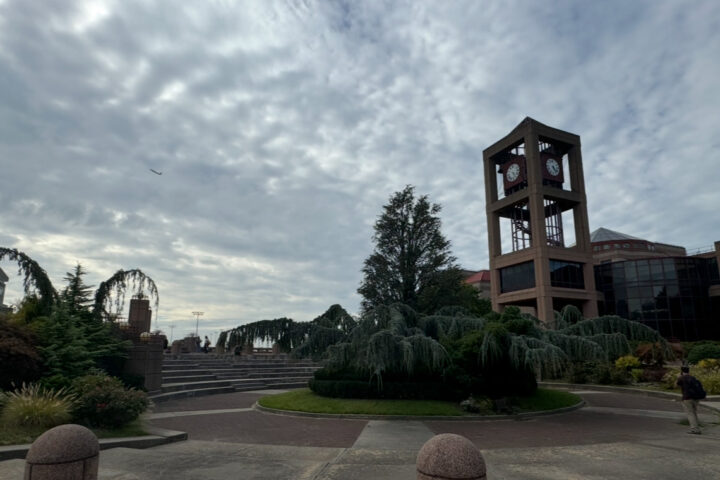The Knight News recently conducted an interview with Dave Fields Esq., Senior University Dean and Faculty member at the CUNY Law School. You might recognize his name from the plaque at the front of the lecture hall, Kiely 170. Fields is an alumnus of CUNY Queens and currently serves the Queens College Academic Senate as its Parliamentarian. He delved into his past of student activism, his success in founding the CUNY Law school and the history of Queens College.
Fields started his undergraduate career in the early 1970’s. He had originally set out to be an engineer and was participating in a CUNY program that required him to spend 2 years at Brooklyn Tech and 2 years at CUNY Queens. As a pre-engineering student, in the political climate of the Vietnam War, he quickly got involved in the WQMC Radio, QC’s student-run radio station, as its chief engineer. Fields recounts the activism on campus that he witnessed and soon became closely involved with.
“…I was at an event where some students met with the recruits from the Honeywell Corporation, which made smart bombs, and they [students] were protesting that [technology],” he said, “Honeywell reps then went off campus [as they were] asked to leave.” It was shortly after those series of events that the college brought charges against students in violation of their own rules, which resulted in many suspensions. Next, came the unthinkable. Students took over the buildings on campus in an act of retaliation. Fields himself stated that he lived in what would eventually be named the Powdermaker Hall, during the early 70’s.
It was during that student takeover that Fields significantly progressed the Queens College campus to further heights. After becoming involved with student government during the student takeover, Fields and his fellow students helped create the Academic Senate. The senate is the governance system on campus that approves all academic matters (e.g. curriculum, policies, etc.). Fields ran for a seat on the Undergraduate Curriculum Committee, which he co-chaired with another member of the community and helped to write the individualized Bachelor of Arts. The B.A. was then adopted by the Board of Trustees as the CUNY Bachelor of Arts degree.
Fields was then asked to serve as an assistant to QC President Joseph Murphy, from 1972 to 1989. He was tasked with the important job of reorganizing the affairs of the university alongside other members on a committee, of which he was a part of. Fields said, “We [the students] reorganized QC and one of the recommendations was to establish a law school. The president of QC asked me to help establish the law school.”
Fields made a single motion at the floor of the Academic Senate to establish the CUNY Law School, which would be passed and adopted unanimously. His work made it possible to include a special section, “…that would train its students to reach people historically underserved by the law, minorities and undocumented students, and to take a clinical approach.” He is proud that the Law School is on the forefront of diversity.
Fields also discussed his history of student activism. He was one of the three incorporators of NYPIRG, as well as its founding director. Fields chaired the very first meeting of NYPIRG and wrote bylaws that would be unanimously adopted. In addition to serving as the founding director of NYPIRG, Fields founded an administrative board on campus known as the Student Activities Corporation. As Fields puts it, “The college bookstore and cafeteria were operating in deficit. The students talked to the president about wanting to resolve the situation. He was really open to this. We [Student Activities Corporation] explained to the president we could take over the cafeteria and the bookstore if they gave us control of the student activity fees. We took on all the debts of the college bookstore and cafeteria and established that corporation.” Fields states that the students helped to pay off all the debt in 5-6 years.
“Question everything. Do not accept what people tell you is true,” he said. “Find out for yourself. When someone tells you there’s a rule and you have to do it this way, ask to see the rule. Half the time, people make this stuff up.”
The Knight News thanks Mr. Fields for granting our staff the opportunity to interview him.











